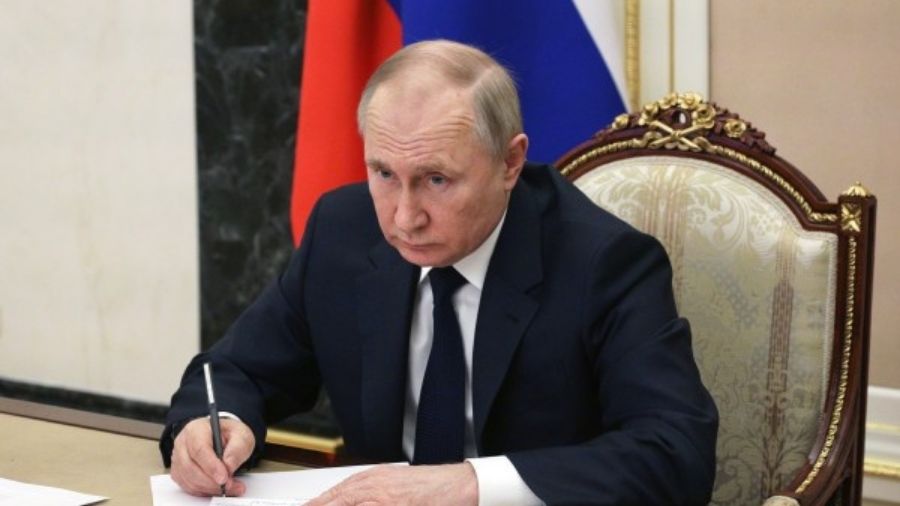The signs of failure in Russia’s invasion of Ukraine are readily apparent: the tattered reputation of its military as a modernised, overpowering fighting force; its tattered economy; and a western alliance more unified than at any time since the worst tensions of the Cold War.
But what is less appreciated is that this is only the latest and potentially the most spectacular in a series of failures suffered by President Vladimir V. Putin of Russia in Ukraine. If Afghanistan is the “graveyard of empires”, Ukraine is where Putin’s imperial ambitions consistently founder.
In fact, the main reason the Russian leader took such a potentially self-destructive step as a whole-scale invasion, some analysts believe, was to reverse a long line of fiascos.
“He has been obsessed with Ukraine since the early 2000s because Ukraine became the field where he kept losing, the only field where he kept losing,” said Mikhail Fishman, the former host of a political talk show on TV Rain, the now shuttered independent television network.
There is always the chance that he could prevail this time. Support for the war at home seems to be strong.
But even those outcomes would bring costs, reinforcing Ukrainians’ hatred for Russia, cementing Moscow’s status as a pariah to the West and almost certainly requiring a lengthy and expensive occupation.
History has tended to smite Russian leaders who launched what they wrongly anticipated would be short, victorious wars.
The Russian Revolution that ended 300 years of Romanov rule erupted a few years after Czar Nicholas II lost a disastrous war against the Japanese, while the Soviet Union collapsed in the wake of its debacle in Afghanistan.
Some analysts believe that Putin is risking a similar fate. “He will lose Russia because of Ukraine,” said Fishman.
While Putin has publicly emphasised the security threat posed by a westward leaning Ukraine as a reason for going to war, others say his deepest concern is the possible political fallout from living next door to a boisterous democracy with decent economic prospects.
“Putin’s ultimate nightmare is a colour revolution in Russia, and that is the lens through which he views people voting in Ukraine,” said Clifford Kupchan, chairman of the Eurasia Group, a political risk assessment firm in Washington. “Because it is so close, culturally, the threat of contagion as he perceives it is even greater.”
Putin’s successes are legion, especially his entire career arc from an obscure, midlevel intelligence agent — forced to drive a taxi to make ends meet after the collapse of the Soviet Bloc — to becoming one of the longest-running leaders ever to occupy the Kremlin.
Yet in Ukraine, Putin, 69, has taken repeated missteps.
In 2004, he campaigned personally in the presidential election on behalf of his preferred candidate, Viktor F. Yanukovych. But widespread accusations of voting fraud sparked a nationalist backlash and the Orange Revolution, with street protests culminating ultimately in the election of Viktor A. Yushchenko as President in a western-oriented government.
In 2006, Putin tried to wrest greater control over — and profits from — the natural gas distribution system carrying Russian supplies across Ukraine to Europe, creating an uproar by cutting the flow in the middle of winter.
He backed down when it became apparent that he risked losing energy markets in Europe if supplies of Russian gas could not be relied upon.
In 2009, he attempted to effect a cabinet reshuffle in Kyiv that would have allowed his allies to dominate the government, but the effort collapsed.
Putin made his gravest error before now in 2013, when it looked like Ukraine would successfully slip Russia’s orbit by signing an association agreement with the European Union. To head that off, he dangled a $15-billion loan that Yanukovych — by then the legitimately elected but incorrigibly corrupt President — accepted. As in 2003, that triggered massive street protests on Kyiv’s Independence Square, or Maidan.
After police violence encouraged by Moscow failed to deter the demonstrators, Yanukovych fled to Russia in February 2014.
Putin called it an American-inspired coup and invaded Crimea, eventually annexing it, and kindled a separatist war in the Donbas region, the resource-rich rust belt of eastern Ukraine. The war became a grinding impasse that by 2022 had killed 14,000 people, many of them civilians.
(New York Times News Service)











